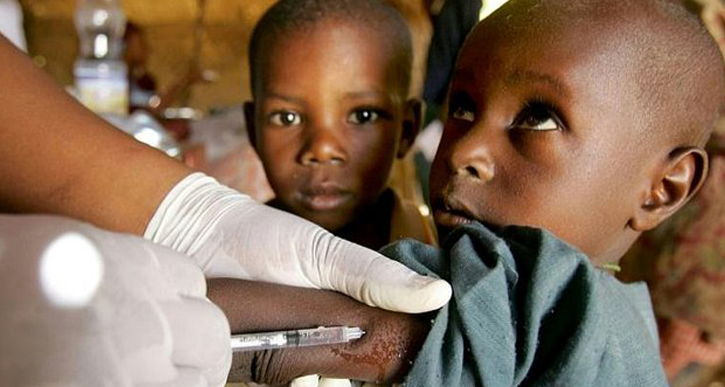Children need not die of cancer

Being told that your child has cancer is every parents’ nightmare but with more awareness, political will, adequate and access to equipment, increased preparedness and early detection, children who die of cancers would survive. LARA ADEJORO reports
Just like every other caring parent would feel, Mrs Abebi Obembe was shocked, sad and angry when her 9-year-old daughter was diagnosed of a life-threatening disease, cancer-leukemia.
Leukemia is a type of cancer that affects the bone marrow and other bone-forming organs which produces increased numbers of immature or abnormal leukocytes. These suppress the production of normal blood cells, leading to anaemia and other symptoms.
Mrs Abebi blamed herself for everything, even for not been observant. “So many things ran through my mind, I wasn’t prepared for this. I was scared she Feyi, my daughter was going to suffer and die. I knew my family would go through major changes and upheaval. In fact, I was hit over the head when I heard the news, it wasn’t funny. No one wished for this but it has happened.”
Some of the things she found distressing while caring for her child are limited expertise in childhood cancer management and limited palliative care services in Nigeria.
Children can survive cancer and there is life after cancer but far too many children are still dying. Cancer is a leading cause of death in children especially in developing countries like Nigeria. In the United States, it is the second most common cause of death among children age between the ages 1-14, surpassed only by accidents.
 It’s a bigger killer than many of the things parents are almost irrationally paranoid about – meningitis, murder, swine flu, and so on. “There are some parents that when you tell them their child have cancer, they will say their child have malaria,” said Dr Nneka Nwobi, President, Children Living with Cancer Foundation (CLWCF).
It’s a bigger killer than many of the things parents are almost irrationally paranoid about – meningitis, murder, swine flu, and so on. “There are some parents that when you tell them their child have cancer, they will say their child have malaria,” said Dr Nneka Nwobi, President, Children Living with Cancer Foundation (CLWCF).
Yet, there are 160,000 new cases of childhood cancer annually among children below 15 years and there are 90, 000 deaths annually among children below 15 years old globally.
Malignancies in childhood are relatively rare and prognosis have been improving in the last three decades as a result of more accurate diagnosis and improved treatment strategies, “In the West, the mortality rates for most cancers have decreased by 65-70 per cent over the last 25 years. In high income countries, survival rates for childhood cancer are 80 per cent and this can be higher for the leukemia,” Nwobi said.
“However, in the middle and low income countries, survival rates are falling even to as low as 10 per cent. In Nigeria, survival rates for the leukemias is about 5 per cent.”
Adding, she said, the mortality rates for leukemias is above 99 per cent and 40-50 per cent for solid tumors in Nigeria.
For instance, “in the Lagos University Teaching Hospital, (LUTH), Idi-Araba, Lagos, the incidence of childhood leukemias increased from about 12-20 cases in 2010 to over 30 new cases in 2015.
“In LUTH, as at June 2015, 16 new leukemia cases have been registered. Solid tumors account for most of the cancer burden in LUTH. This comprise lymphomas and embryonal tumors, osteosarcomas, Wilm’s tumor, neuroblastoma and CNS tumors.”
She said though the awareness is getting better but there are parents hide their children, “they don’t talk about it. Out of 10 parents, let’s say only 1 will be willing to talk about it. The stigma is there, some parents send their children to the village to be out of sight from their friends, some of them send them to herbal home and leave them there. We’ve had parents abandon their children in hospitals because they don’t want to be identified with them.
“Truly, many are still not aware that children can have cancer. There’s ignorance, and they don’t bring in their children early, the denial rate is plenty.
“And of course, there is no political will. Nigerians are just coming together to talk about what is happening in our environment and encourage each other, which has been done elsewhere long time ago. The support system is not there.”
Adding, she said, if the equipment is not there and you’re getting wrong diagnosis, “it means you’re treating the wrong thing because you don’t have what it takes to get the right diagnosis, all these things are necessary.”
Cost of care
In Nigeria, the average cost of managing a leukemia case is N3 million and the average cost of managing solid tumor case is N850, 000 to N1 million
CLWCF for cancer patients and survivors
Charities such as CLWCF was set up 13 years ago to cater for the welfare, and medication of children battling with cancer whilst providing support for their families.
“Childhood cancer is curable if detected on time and dealt with promptly. CLWCF is committed to help facilitate awareness of childhood cancers and support of families affected by cancer most of which are from poor families.”
Go Gold this September!
September is childhood cancer awareness month and gold is the symbolic colour of childhood cancer. Therefore, every year, Childhood Cancer International members and the whole community of childhood cancer champions, advocates and supporters encourage iconic buildings, historic landmarks, monuments, bridges and natural environments to go gold by lighting them up in gold or by hanging huge gold ribbons.







